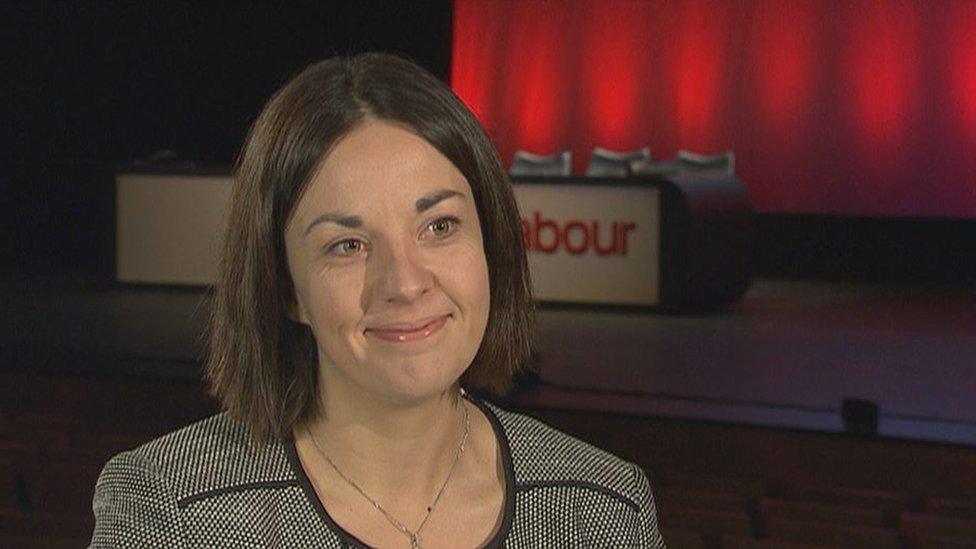Scottish Labour would raise tax for 'top earners' to pay for education plan
- Published
Kezia Dugdale: "If there is a magic key to a fuller and more fulfilling life."
Scotland's Labour leader Kezia Dugdale said her party would raise taxes for higher earners to pay for improvements to education.
She also told her party conference in Perth that a Labour government at Holyrood would reverse tax credit changes affecting working families.
Ms Dugdale insisted "ordinary" tax payers need not pay more for her plans.
She said her education proposals would be paid for by asking those "very top earners" to pay "a bit more tax".
The MSP outlined the party's "Fair Start Fund" which would be linked to every child from a poorer family.
The money would not be handed out by councils but would be sent direct to schools and controlled by the teachers and head teachers "who know their schools best".
She made the announcement after criticising the SNP administration at Holyrood.
Ms Dugdale said: "I say to the SNP after eight years in charge - I will judge you on your record. And I will judge you above all on your record on education.
"Every child you have left behind, well that neglect offends this Labour movement. Every single one of the 6,000 children, who has left a Scottish primary school this year, on your watch, first minister, unable to read properly.
"Well that record disgraces this nation and it constrains its future."
Other announcements included;
restoring the money Scottish families stand to lose from the Conservative government's tax credit cuts
giving care workers a "real living wage"
handing youngsters leaving care and going to university a grant of £6,000 a year to help themmaking Scottish Labour a "more autonomous" party
dropping SNP plans to cut Air Passenger Duty
and ditching Chancellor George Osborne's proposals to cut the higher rate of income tax.

What was Kezia Dugdale trying to tell us?
By BBC Scotland political editor Brian Taylor
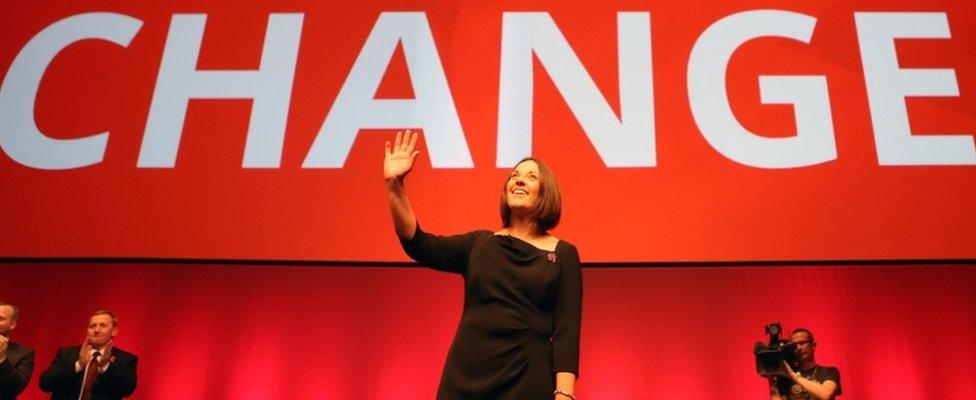
Kezia Dugdale arrived on stage with the single word "Change" projected in gigantic letters above her on a strident crimson screen.
I think she was trying to tell us something.
And what is the change she is seeking to effect?
It is this. She would prefer, on balance, all things considered, that more folk vote for her party. Taking account of every factor, she would rather avoid another gubbing.
Her speech was an intriguing balance of passion and control, delivered mostly without rhetorical devices and in a style which suggested sorrow at Scotland's - and Labour's - plight rather than fury.

Ms Dugdale said with new powers heading to Holyrood, it was now time to "make different choices".
She told her conference: "It's not good enough anymore to have leaders who congratulate themselves on managing the status quo, to have ministers who are campaigning when they should be governing.
"Real financial responsibility means we can make different choices but it doesn't mean that these will always be easy choices."
The politician said she wanted Scottish Labour to be "out ahead" and be the party of progress "not bumper stickers and T-shirt slogans".
Ms Dugdale believed the SNP was making the "kind of mistakes we did" when Labour dominated Scottish politics.
She said: "At first minister's questions, whatever issue I raise, the response has been the same complacent answer - look at our poll ratings.
"Friends, in a modern democracy we need a government in Scotland that spends more time explaining itself and less time congratulating itself."

'Why we're sticking with Labour'

Shonagh Munro, Greg Lane, Stuart Murphy and Pippa Weaver are Scottish Labour Party members
Who would join Scottish Labour - a party with just one MP north of the border and a poor showing in the polls?
Five young people - attending the Scottish Labour conference in Perth - tell BBC Scotland political reporter Philip Sim (@BBCPhilipSim) what's making them stick and not quit.
- Published31 October 2015
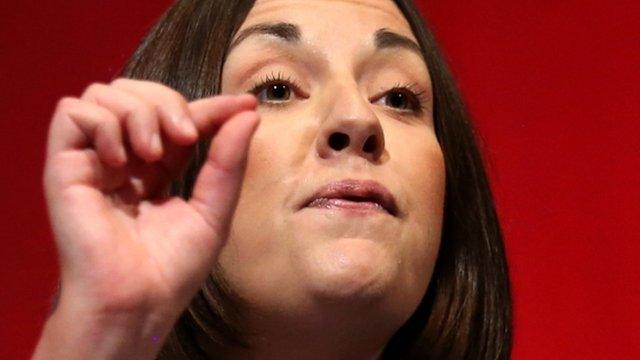
- Published31 October 2015
- Published31 October 2015
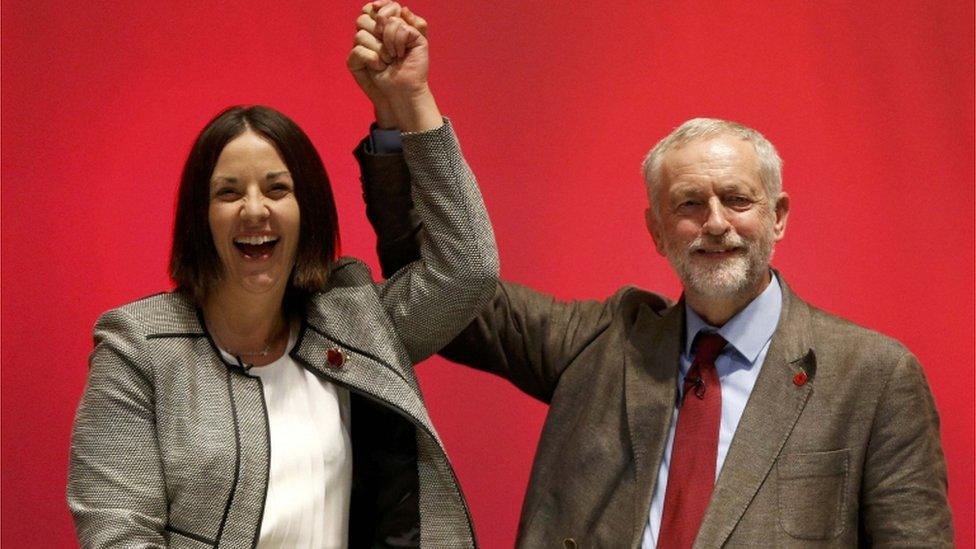
- Published31 October 2015

- Published30 October 2015
- Published30 October 2015
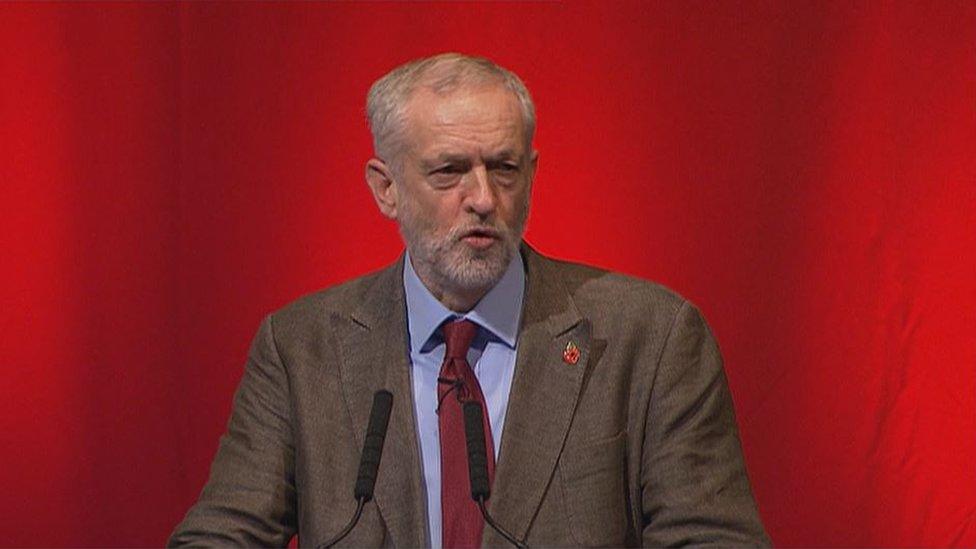
- Published30 October 2015

- Published30 October 2015
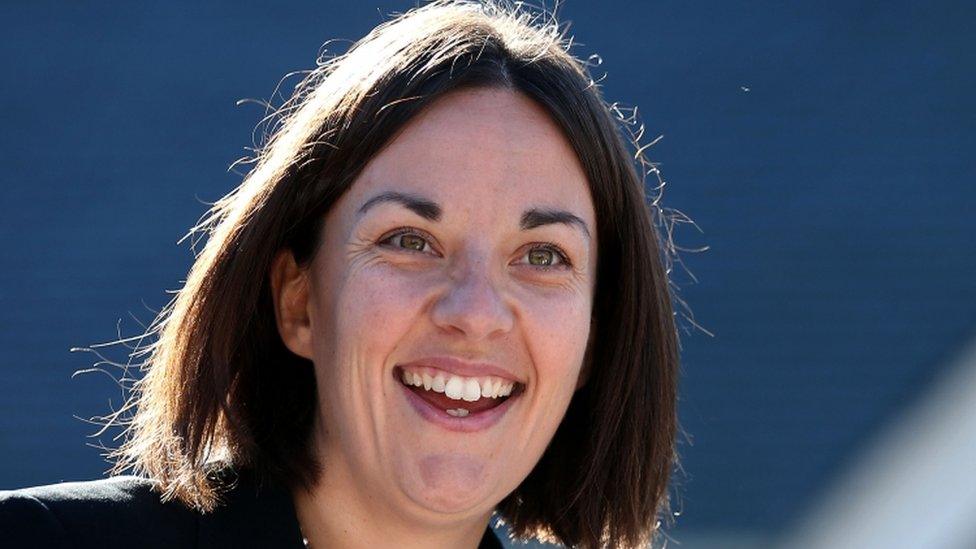
- Published30 October 2015
